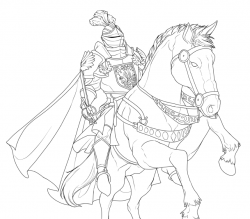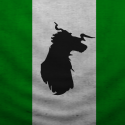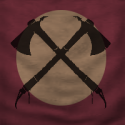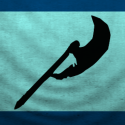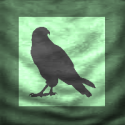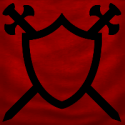|
|
| Line 16: |
Line 16: |
| |title = [[Villiers-Eclaire Order]] | | |title = [[Villiers-Eclaire Order]] |
| |color = 99E5B8 | | |color = 99E5B8 |
| |image =Unionismlaaol.png | | |image =Unioninisn.png |
| |caption = Defenders of the Faith, Protecting the Unionist Divine | | |caption = Defenders of the Faith, Protecting the Unionist Divine |
| |text = | | |text = |
| Line 41: |
Line 41: |
| ---- | | ---- |
| {{Subject Table | | {{Subject Table |
| |title = Darkwald Order | | |title = [[Darkwald Order]] |
| |color = 99E5B8 | | |color = 99E5B8 |
| |image =Falketragpn.png | | |image =Falketragpn.png |
| Line 50: |
Line 50: |
| ---- | | ---- |
| {{Subject Table | | {{Subject Table |
| |title = Bloodcast Order | | |title = [[Bloodcast Order]] |
| |color = 99E5B8 | | |color = 99E5B8 |
| |image =Bloocastshot.png | | |image =Bloocastshot.png |
Revision as of 01:39, 30 October 2020
testing formatting stuff, nothing really special
The term “knight” comes from the Alt-Regalian “Knecht” which loosely translates to bondsman or vassal. Presumably, the word dates back to the old Ceardian “kniucht” which loosely translates to superior warrior. In the days of the old Ceardian Humans, proto-knights were the warlords who ruled smaller fiefs and waged wars on one another in a period that is generally viewed as Humanity’s forgotten age. When the states formed, or the Regalian Kingdom more specifically, these warriors became distinguished titleholders who ruled in the King’s stead much like how the nobility does in the present day. Eventually, Julian de Montverrat fought on behalf of the Five Families, using his military skills to seize the city gates which ultimately ended the Rebellion. This is when Knight became synonymous with ‘trained warrior’, and the first of the Knightly Military Orders were established. The term chivalry comes from the Ithanian word “chevalerie” which can be translated as horse soldier. Before Ithanian pacifism became prevalent, Ithanians cultivated the most talented horse riders. Owning a horse usually implied one’s wealth, and with wealth one was expected to distinguish themselves from the peasantry by courteous and honorable behavior.
The School of Viridian is commonly believed to be the oldest Knightly Order and therefore the grandfather of all other Orders. The School started during the rule of the First Emperor of Regalia, Theomar, but was rocked by controversy and even an attempt to overthrow the Empire’s rulers in 122 AC. Since then, the Order was strictly reformed time and time again to become what it is today. While the Viridian Order suffered numerous severe member losses during the Ranger Crisis, the Anahera Dictatorship and the Lo Occupation, the Order still exists, with its membership recovering strongly due to the support of the Regalian Emperor, who has taken measures to see the prestige of the First Knights maintained in the Empire. |
|
The School of Villiers-Eclaire is a school that is relatively new and based out of the island of Basta, in the Regalian Archipelago. The Villiers-Eclaire School was largely made to provide the Sancella of Unionism with a failsafe in case the more freely moving Lancyon Halberdiers would prove too disloyal to the Sancella, and also to counter the less religiously-minded other Knightly Orders. The School of Villiers-Eclaire is largely funded and supported by the de Gosselin family, many of whose members are also high ranking Elders in the order. It should as such come as no surprise that many of the Villiers Knights serve in the de Gosselin’s personal retinue and military forces, and accompanied Duke Florent I’s attempt to seize Ithania. While criticized by the other military orders for their heavily political agenda, the Order continues to remain an example of the Unionist Faith, fighting on behalf of the Synod to spread the faith. |
|
The School of the Great Oak is a Knightly school in Drixagh, founded by the Höglander who believed that the northern wilds should not be purged, but instead encouraged with elegance and a knightly code of honor, tempering the rage and uncontrolled vigor of the Velheimer people and the School of Skaggers into a more structured and organized society. Their answer to trying to lead by example was to create the Knightly Order of the Great Oak, a chapter house that finds its home in the North, with small knightly champion lodges dotted in the territory. These lodges are frequently much smaller than the great lodges, and the Knights of the Great Oak are frequently ridiculed or cast out by the Skagger loyal population as being traitors to the free will of the Velheimers. Unfortunately, the Great Oak knights are also pariahs among the other Knightly Orders, who all believe that the Great Oak’s code of Honor is far too watered down and betrays some core principles of the concept of Honor. However, this was a conscious decision taken by the first Knights of this Order to give it appeal to the Velheimer people and to fit within their culture. Nevertheless, they are still known as the most formidable hunters of great beasts in the Empire, leading them to be a must-have on any dangerous adventures. |
|
The School of the Lion Pelt is considered the heaviest armored and damage dealing Knightly Order, favoring the use of the Beorl Axe and removing the use of shielding aside from the heavy armor that is worn by the Lion Pelt Knights. Lion Pelt Knights are, unsurprisingly, easily recognized by the Ularen Lion pelt they wear, including a taxidermy head rested on the shoulder. The fur of the Lion Pelt is either dyed white or of a natural white, combined with a white semi-cape and brilliantly polished armor. Lion Pelt Knights are often considered the most well dressed male Knights as they look both imposing and classy, even reminiscing the image conjured of Altalar Lancers of the Allorn Empire. Lion Pelt Knights don’t often go to war or show presence at major battlefields. Instead, they can be found as bodyguards or Life Guards of important political figures and liege lords alike, not necessarily serving just nobility, but also wealthy clientele with coin to spare for their fearsome combat skills. |
|
The School of Darkwald is a relatively unknown and likely the smallest Order in existence in terms of members. Darkwald Knights rarely if ever actually leave their homeland of Tirgunn, a dark and forested island off the coastline of Osteiermark in the Regalian Archipelago. The Darkwald Knights are often mistaken for the Tirgunn Hunters, who serve much the same purpose, dress the same, but have a different fighting style. While often thought of as only Vampire Hunters, the Darkwald Knights in fact fight against all they consider to be enemies of the Tirgunn lands, alongside the New Regalian Culture of their leader. |
|
The School of Bloodcast is a bit of an odd duck in the Knightly Orders because it does not have an Honor Code. The Bloodcast Knights were a splinter movement created after the failed coup initiated by a few Viridian Knights. The first few Bloodcast Knights believed that the restricting code of Honor put on them was causing them to be suffocated in pomp and duty, and lowered their effectiveness and their charitable work among the poor. They were also disgusted with the splendor of the Viridian Knights, who were frequently known to sacrifice hordes of poor levies on battlefields for favorable positioning, only to then come out as the heroes for their minimal effort. As such, the Bloodcast Knights have no restrictions and rules, roam wherever they please, and serve what they consider the greater good, which is usually justice, authority, charity, and kindness. |
|
